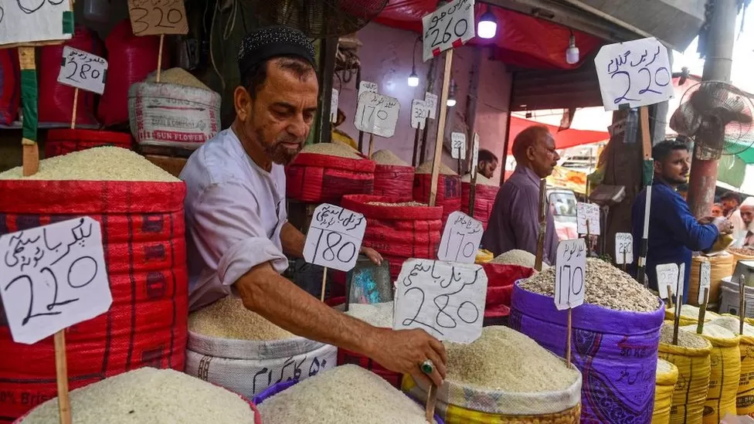Crisis-hit Pakistan has reached a staff-level agreement with the International Monetary Fund (IMF) over $3bn (£2.4bn) of funding.
The deal, which still needs to be approved by the global lender's board, comes after an eight-month delay.
The South Asian nation is facing its worst economic crisis since independence from Britain in 1947.
To help secure the deal, Pakistan's central bank raised its main interest rate to a record high of 22% on Monday.
Pakistan's economy, which was already struggling after years of financial mismanagement, has been pushed to the brink by a global energy crisis and devastating floods that hit the country last year.
"The economy has faced several external shocks such as the catastrophic floods in 2022 that impacted the lives of millions of Pakistanis and an international commodity price spike in the wake of Russia's war in Ukraine," Nathan Porter, IMF's mission chief for Pakistan said.
"As a result of these shocks as well as some policy missteps... economic growth has stalled," he added.
Once agreed at staff level such deals are usually granted by the IMF's Executive Board. The board is expected to consider the agreement in the coming weeks.
"This deal gives Pakistan the economic breathing room that it so badly needs," Michael Kugelman from the US-based Wilson Center think tank told the BBC.
"The question is if it can use this IMF deal as an opportunity to pivot from immediate relief to a long-term recovery," he added.

Katrina Ell, a senior economist at Moody's Analytics, said: "High inflation coupled with limited foreign reserves and lacking macroeconomic stability take time and sustained fiscal discipline to overcome."
Pakistan's annual inflation rate hit a fresh record high in May of almost 38%.
The $3bn of funding, which will be spread over nine months, is higher than expected.
Pakistan was awaiting the release of the remaining $2.5bn from a $6.5bn bailout package agreed in 2019, which expired on Friday.
The nation of more than 230 million people has been struggling for years to stabilise its economy.
This year the country's foreign exchange reserves fell to a level that covered less than three weeks of imports.
Deadly clashes between supporters of Pakistan's former prime minister Imran Khan and police have also rattled financial markets.
In May, Mr Khan was arrested on corruption charges, in a move that has since been ruled as illegal by the country's Supreme Court.
Over the last year the Pakistan rupee has fallen by around 40% against the US dollar.
Separately, donors from around the world have pledged more than $9bn to help Pakistan recover from devastating floods that hit the country in 2022.
It had been estimated that it needed more than $16bn to recover from the disaster.
Latest Stories
-
Interplast named among Financial Times’ fastest-growing companies in Africa
4 minutes -
GPRTU to reduce transport fares by 15% effective May 25
18 minutes -
Ghana Alphas, Tau Alpha Lambda donate to Abeadze State College
24 minutes -
I’ve closed all ECG’s bank accounts except for one single holding account at GCB Bank – Energy Minister
38 minutes -
Screenwriters Guild of Ghana, Producers Guild, and National Film Authority forge alliance to elevate Ghana’s Film Industry
45 minutes -
Dr. Adu Anane Antwi appointed Chairman of new SEC Board
47 minutes -
Finance Minister charges new NIC board to expand insurance coverage
1 hour -
Patrick Owusu Agyei urges comprehensive port reforms in Ghana
1 hour -
Why Ghana should introduce Municipal Bonds: Unlocking local development through fiscal decentralization
1 hour -
New Insurance Commission board vows bold reforms to expand access and innovation
1 hour -
Ghana’s power paradox: thermal energy surges, but debt to IPPs and fuel suppliers hit $2.5 bn
1 hour -
Encroachment on waterways caused Sunday floods – Hydrological Authority
2 hours -
Expect more heavy rains and flash floods – Meteo agency cautions
2 hours -
Illicit financial outflows a major drain on our revenue potential – Dr Amin Adam
2 hours -
Israel allows five UN aid lorries into Gaza after 11-week blockade
3 hours

